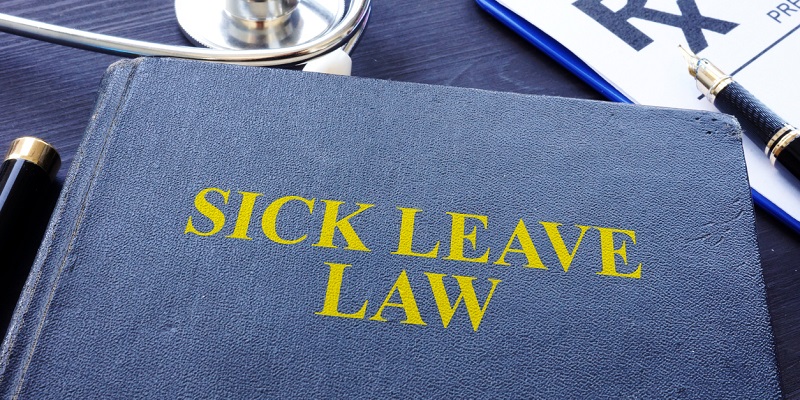
In a bid to support the booster vaccination efforts, emergency legislation was laid before Parliament yesterday on the 16th December, which has come into effect today, Friday 17th December 2021.
The Statutory Sick Pay (Medical Evidence) Regulations 2021, mean that an employer cannot ask for proof of sickness until the employee has been off work for 28 days or more.
It applies to all sickness absences (periods of incapacity for work) which began on or after 10th December 2021 up until and including 26th January 2022.
It applies to absences which began on or after the 10th December, because those workers would not yet have been absent for more than seven days when the law came into effect and hence the requirement to provide medical evidence has not yet arisen.
The aim of the legislation is to allow GP capacity to be increased to maximise support for the coronavirus vaccination booster rollout across the UK.
The temporary Regulations apply to England, Wales and Scotland.
Guidance to employers
Asking for a statement of fitness for work and managing absence
- The length of time before an employer can require a statement of fitness for work is the only thing to have changed, and this is due to revert to the normal period from 27th January.
- Employers must be sure that they do not require workers to provide a sick note (statement of fitness for work) for an absence of seven days or more as they may normally may have done and they must not penalise workers for not providing this evidence before 28 full days of absence.
- Penalising staff for not providing a sick note before 28 days may have significant risks, the worst being claims such as discrimination arising from a disability and unfair dismissal etc.
- Otherwise, employers can still manage absence as they usually would i.e., they may continue to require an employee to follow their absence reporting procedures.
- Employers may also continue to conduct welfare meetings with employees within that 28-day period if appropriate.
- The legislation does not prohibit medical reports or occupational health reports from being requested and therefore this should not have implications on beginning, or continuing with, a fair medical capability process.
Company sick pay policy
Employers who operate a company sick pay scheme (offering pay above the minimum SSP) should continue to operate the scheme normally. They may choose to temporarily vary their policy, such as postponing enhanced payments until a statement of fitness is received after 28 days of absence.
They should only do so if the policy is non-contractual and it should only apply to new absences which begin after this change has been communicated to all staff, so that it is applied equally to all. It is possible this may carry risks of indirect discrimination, so care should be taken in applying such a variation on a case-by-case basis.
Communication and sources of support
Some employers may choose to communicate this temporary change to all staff to update them on the temporary change to their absence procedures. Compose communication which is clearly worded and send the same update to all staff. Include relevant and specific details such as the temporary changes to your policy, company sick pay (as above) and sources of support.
Employers are advised to make use of occupational health services and Employee Assistance Programmes (EAPs) etc, to support employees who are struggling with their health.
False reporting of absence
In situations where an employer suspects a sickness absence to be false, they may consider writing to the individual to forewarn them that the false reporting of absence and claiming of Statutory Sick Pay (SSP) is fraudulent and will be treated as a gross misconduct offence which, if upheld, can result in summary dismissal.
It is advised that a letter of this nature should only be targeted at an individual where there is a genuine concern. It is important to avoid causing undue distress, or even discrimination, where this is a genuine case of illness as part of the employer’s duty toward staff welfare.
As above, some employers may choose to communicate this temporary change to all staff by way of an update. If they have concerns over malingering (false reporting of absence) generally in the workplace, they may consider including a warning about how suspected cases will be treated.
This way all staff have received the same message and cannot be said to have been individually targeted, nor made fully aware of the possible consequences in advance of their actions.
We would recommend checking the government’s Statutory Sick Pay: employee fitness to work for any further updates.
Further information
For more information on HR Solutions or how we can help your business, Contact Us.








